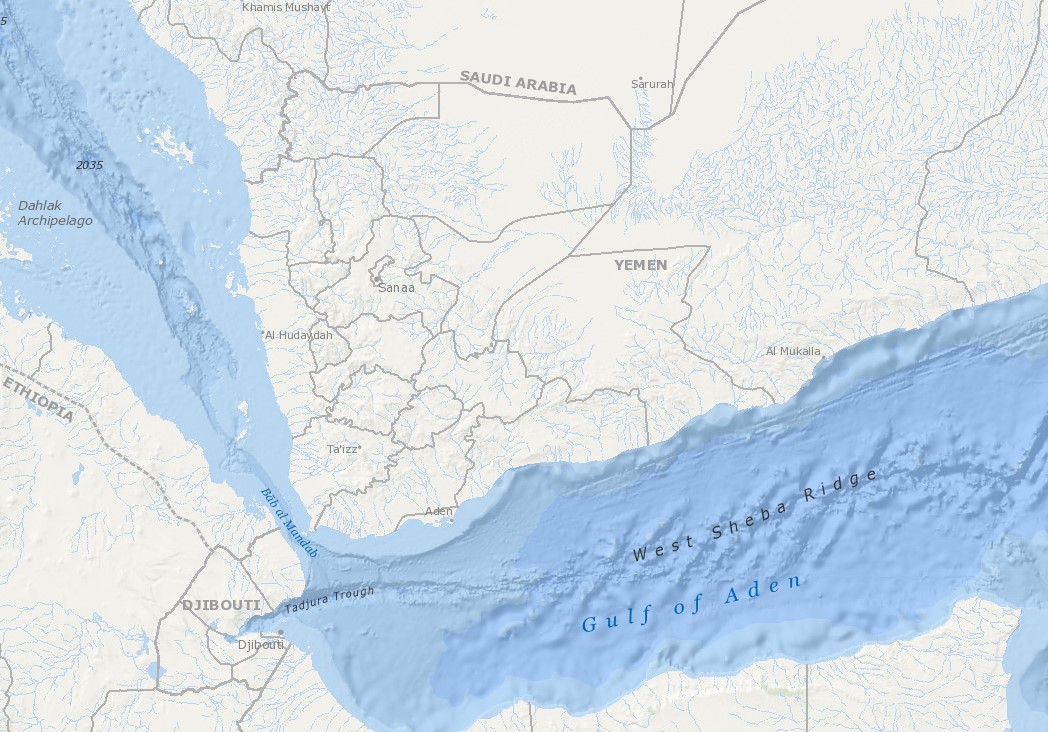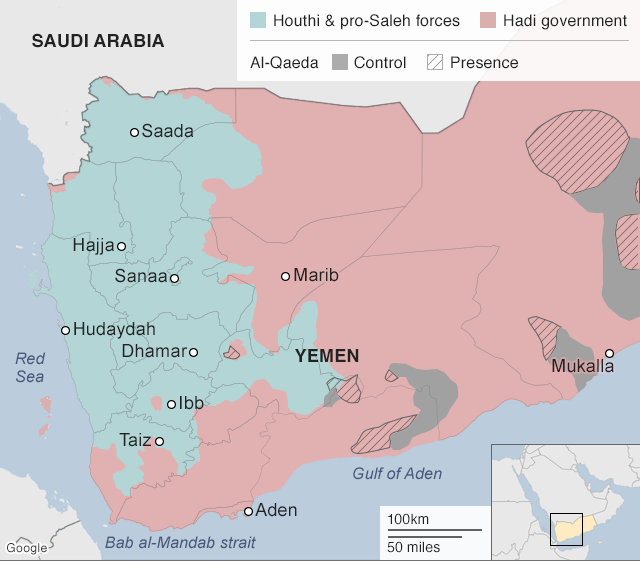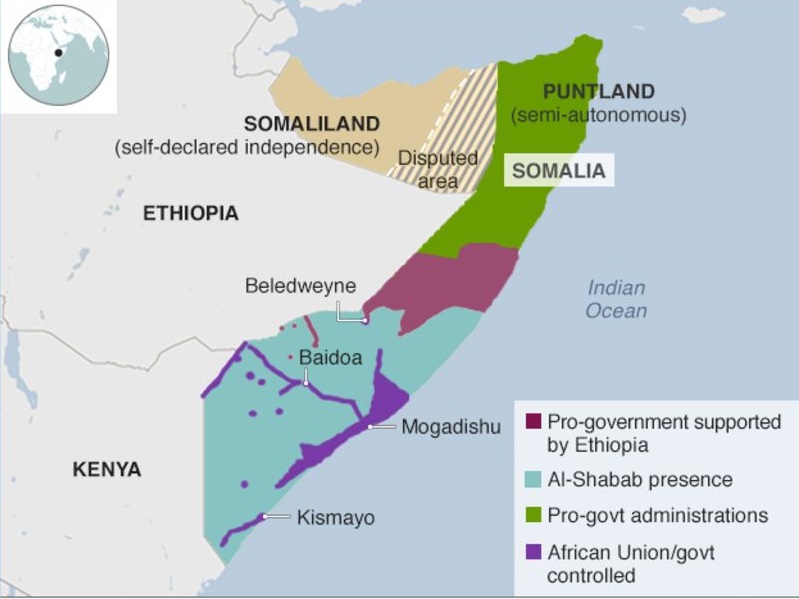Indian Ocean HRA Overview
Continued reported incidents reflect that the HRA remains a threat in regards to piracy activity in the region. Recent efforts to improve the security environment will reduce the impact of Somali piracy, however, continuing deterioration of onshore conditions in Somalia such as famine, terrorist groups, a weak central government and poor governance of coastal areas continue to influence piracy in the region. Pirate financiers capitalise on the chaos offering opportunities to local people. Piracy groups onshore Somalia still bear the motivation to try and carry out attacks and still with capability to target merchant vessels. Increasingly, vessels in the HRA are subjected to incidents that appear to be co-ordinated small boat piracy approaches however they choose not to ultimately attack. These incidents are then difficult to classify as attempted piracy or simply as regional patterns of life in the area. However, as seen in recent months there have been numerous attacks and attempted boarding’s ranging from incidents in the Somali Basin, Gulf of Oman, Gulf of Aden and the Southern Red Sea. The increased presence of naval patrols and armed security on board vessels act as a deterrent to the threat of piracy, however those vessels transiting in the area without the presence of armed security remain a significant risk.
Reported Incidents HRA
No incidents to report (UKMTO)
Yemen Update
At present the civil war in Yemen shows no sign of ending, neither side in the war has gained enough power and momentum to reunite the country under a single government. Saudi led coalition airstrikes continue in the Taiz province, Hudaydah province and Sanaa. The current military offensive along Yemen’s western coast started early last year and are aimed at cutting major offshore smuggling routes and securing the strategic Bab Al Mandab Strait.
This Week
New maritime security industry guidelines issued for the Southern Red Sea and Bab el-Mandeb: In response to the threats arising from the conflict in Yemen, BIMCO, ICS and INTERTANKO have published interim guidance on maritime security in the southern Red Sea and Bab al-Mandeb. Ship-owners and operators should be aware of new threat patterns in the area.
At least 30 African refugees and migrants drown off Yemen: At least 30 people have died after an overcrowded boat with at least 152 Somali and Ethiopian migrants and refugees capsized off the coast of Yemen. The boat departed off the coast of Aden heading towards Djibouti. The boat, operated by smugglers, capsized after gunfire was used against the passengers. It was stated that the smugglers were trying to extort more money from the refugees and migrants.
160 fisherman killed, over 250 boats destroyed by Saudi war on Yemen: According to a reports, Saudi fighter jets continue to target Yemeni fishermen and their boats at sea and the air raids have resulted in the death of 160 fisherman and destruction of more than 250 fishing boats. It was further reported that more than 240 Yemeni fishermen are in Saudi prisons and detention facilities as well.
Aden – Southern Yemeni separatists vow to overthrow Yemen’s government: The separatists declared a state of emergency in the port city of Aden and vowed to overthrow the internationally recognized government. The announcement highlights rising tensions between southern separatists, allied with the UAE and President Hadi’s government over control of the southern half of Yemen.
Ongoing Threat of Violence/Terrorism at Sea off the Coast of Yemen
- Yemen’s civil war has created an environment mirroring Somalia’s lawlessness. The ongoing conflict in Yemen demonstrates how poor security on land has led to violence spilling out into the maritime domain. Houthi rebels continue to control a large amount of Yemen’s red sea coastline.
- In relation to coalition forces advancing towards the Red Sea port city of Hudaydah, currently under Houthi rebel control, increases the risk to shipping in the region. In the past Houthi rebels have repeatedly threatened to attack merchant vessels in the region should coalition forces attempt to re-take Hudaydah port. If coalition forces seized Hudaydah it could be argued this would be a turning point in the civil war as the Houthi rebels would lose their main source of finance through the port in which illegal arms are smuggled.
- Unconfirmed reports surfaced on the 7th January 2018 stating that the Saudi coalition had destroyed at least one Houthi vessel near Hudaydah port after an alleged attack occurred against a Saudi oil tanker. The vessel was reported to be loaded with explosives and controlled remotely.
- The threat of terrorism at sea off the coast of Yemen remains by rebel groups and terrorist organisations such as AQAP. Such is highlighted by attacks against the LNG Tanker Galacia Spirit in October 2016 and the MT Muskie a product tanker in May 2017. Both involved the use of explosive laden skiffs, as an attempt to cause major devastation in the critical international shipping passage of the Bab-el-Mandeb.
- It remains a persistent threat that merchant vessels may be the subject of a miscalculated attack or as has been suggested recently, possibly threats of a calculated attack.
Somalia Update
The UN warned of a grim humanitarian outlook for 2018 in Somalia. Progress towards stability is impeded by extreme drought and hunger, al Shabaab’s continued violence and other enormous challenges. These challenges include pervasive corruption in politics and power-brokers willingness to use violence or threat of violence against opponents.
This Week
Blast near Mogadishu kills 4, including child: Four people have been killed and six others wounded in a remote-controlled IED explosion which hit a military vehicle near the Somali capital of Mogadishu. Al Shabaab claimed responsibility for the explosion. The militant group relies heavily on IEDs, including remote-controlled, magnetic, vehicle-borne and under-vehicle devices to target government soldiers, African Union troops and civilians.
41 Somali pirates sent home after imprisonment in Mumbai: 41 Somali pirates have been deported from India this week among 117 caught in Indian Ocean waters in 2011 and freed recently after spending 7 years in prison.
UN – Al Shabaab in decline, but still a threat: The U.N. official for Somalia said that while al Shabaab remains a serious threat, the terror group is on the decline, and the continued deployment of African Union troops in Somalia is essential to its ultimate defeat. Michael Keating told Security Council members that defeating the group requires both a military and political strategy and serious efforts to address issues that terrorists exploit, such as corruption and the lack of jobs and education opportunities for youth. In addition the issue of the arms embargo placed on Somalia was highlighted as a major obstacle to an effective implementation of an ambitious security sector reform. The government has previously argued the embargo needs to be lifted fully so the army can acquire the heavy weapons they need to beat al Shabaab. Furthermore, the UN warned of potential violence between the two autonomous regions of Puntland and Somaliland. Both regions claim the disputed area of Sool as their own.
Al Shabaab has been increasingly active in Somalia in recent months. The militant group has been battling the Somali Federal Government (SFG) in an effort to govern Somalia. Since 2013, al Shabaab pledged allegiance to al-Qaeda attracting the United States to execute raids and airstrikes against the group. However increased US airstrikes have not enabled African Union Mission (AMISOM) and Somali security forces to gain enough momentum against the terrorist group, al Shabaab has not suffered any great loss of territory or significant casualties from the airstrikes. Al Shabaab continues to maintain strongholds in southern and central Somalia and continue to carry out attacks against military and civilian targets. Somalia is a country whereby tribal loyalties are stronger than national ties. The SFG and Somali forces lack legitimacy outside of Mogadishu. Further to this, al Shabaab further exemplifies the issue of famine, terrorism and corruption making the prospect of stability in Somalia in the near future bleak. Al Shabaab is likely to maintain its present operational tempo in 2018 and further expand its territory in central and southern Somalia.
Piracy
In 2017 between March and May, five vessels were hijacked in Somali waters, whilst this was reported by many to be a resurgence of Somali piracy, it can be assessed as more likely to be a result of a permissive environment during the inter-monsoon period allowing skiffs and PAGS to operate with ease. Until the deep rooted issue of piracy in Somalia are resolved, piracy will continue to be a threat. 2017 saw the worst drought Somalia has seen in 40 years, this coupled with the struggling government and extreme militant violence has brought 6.7 million people into crisis. Pirate financiers capitalise on the chaos offering opportunities to local people. Pirate groups are known to operate in the coastal regions of Puntland, namely Eyl and further south in the Galmudug region, namely Hobyo. It is needless to say, as the increased instability in Somalia continues, it will serve as a permissive environment for piracy operations with an ongoing threat to shipping in the region.



